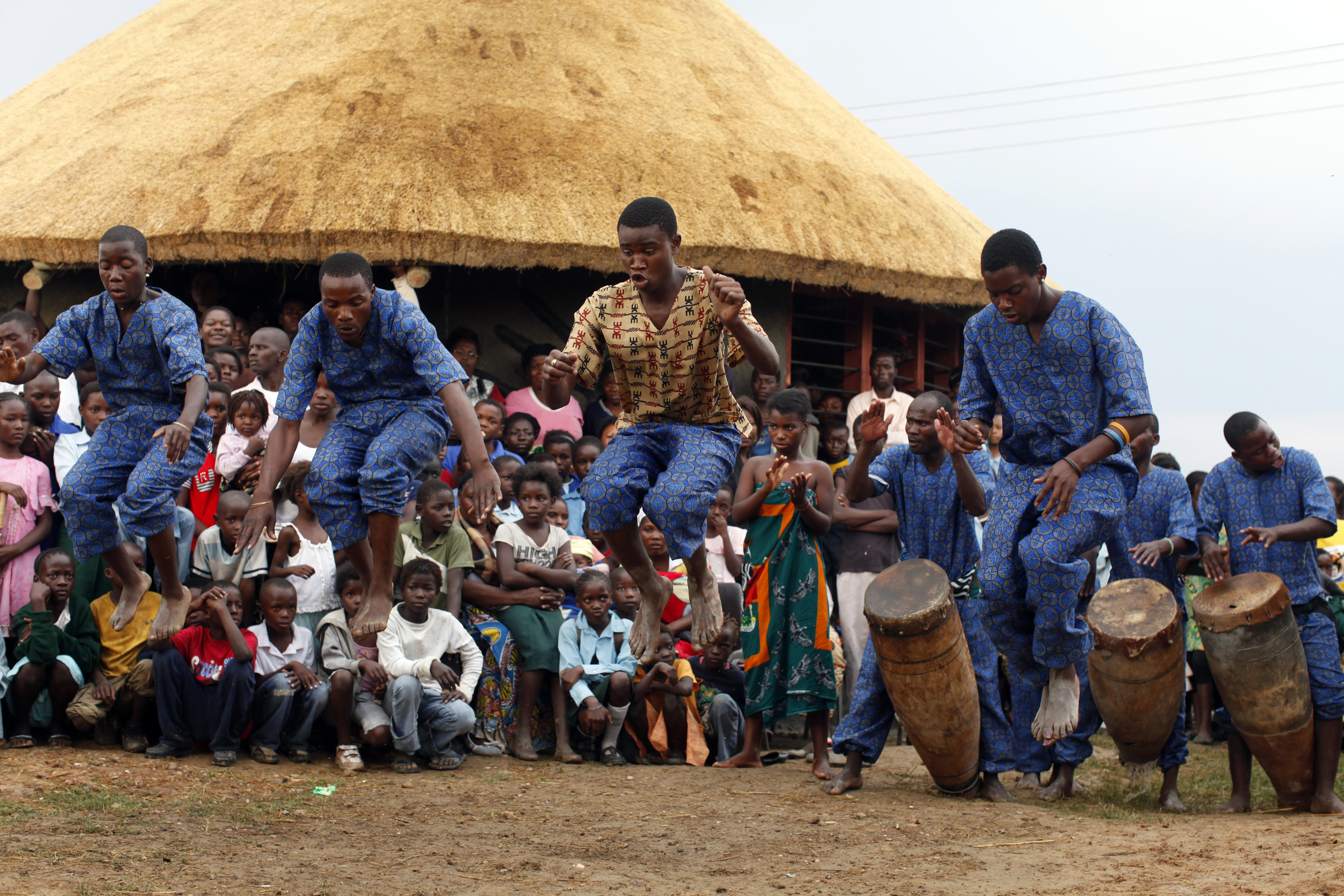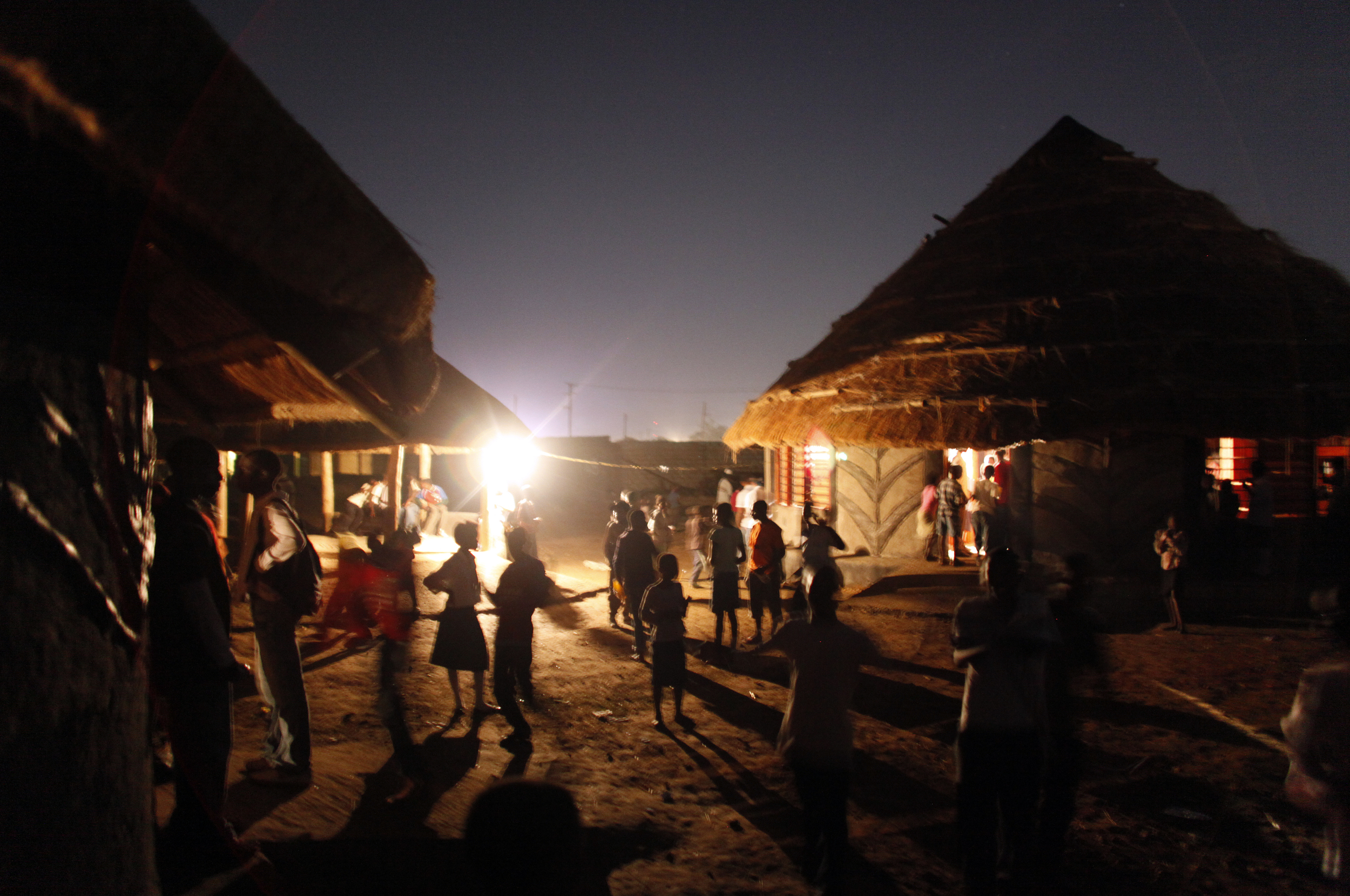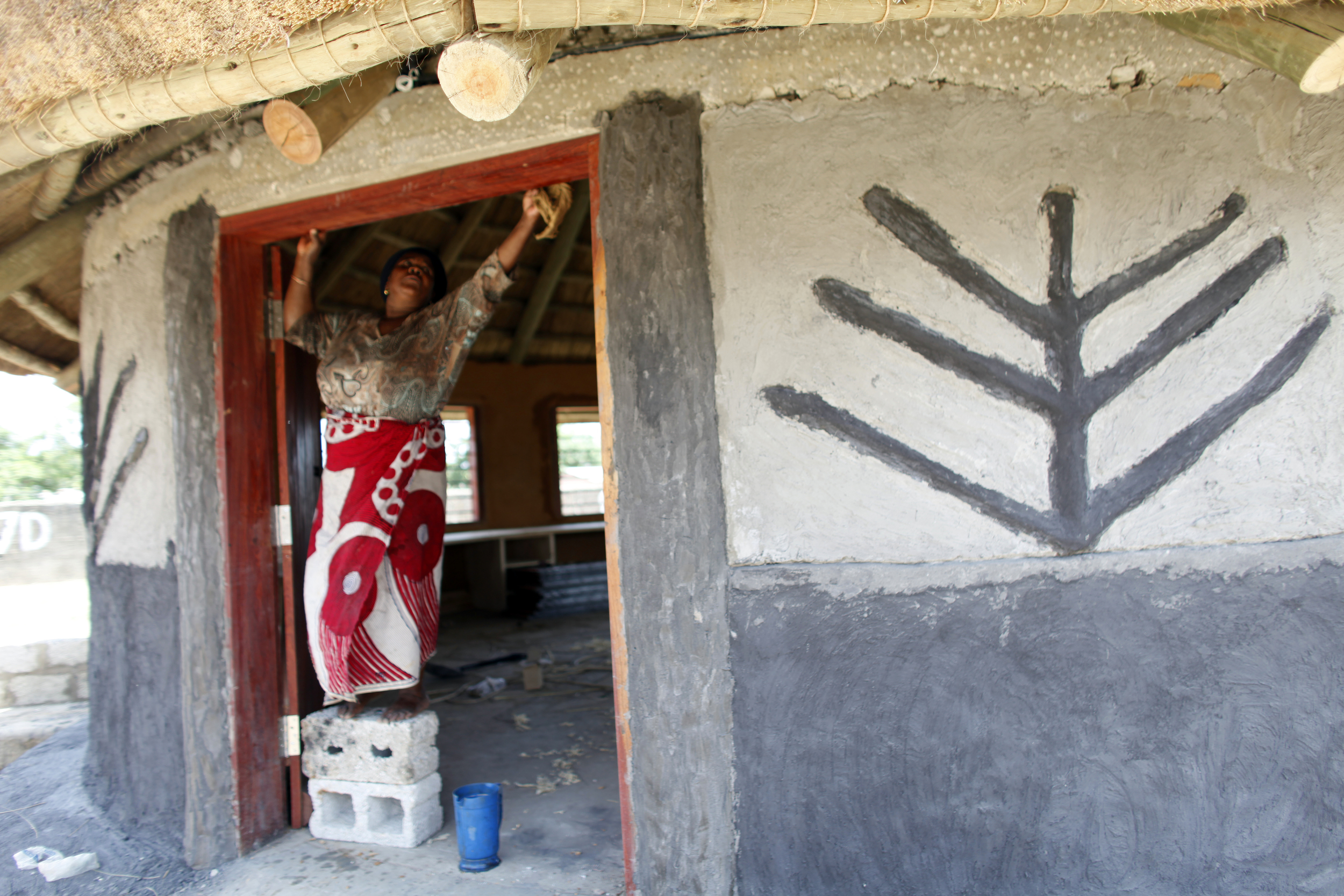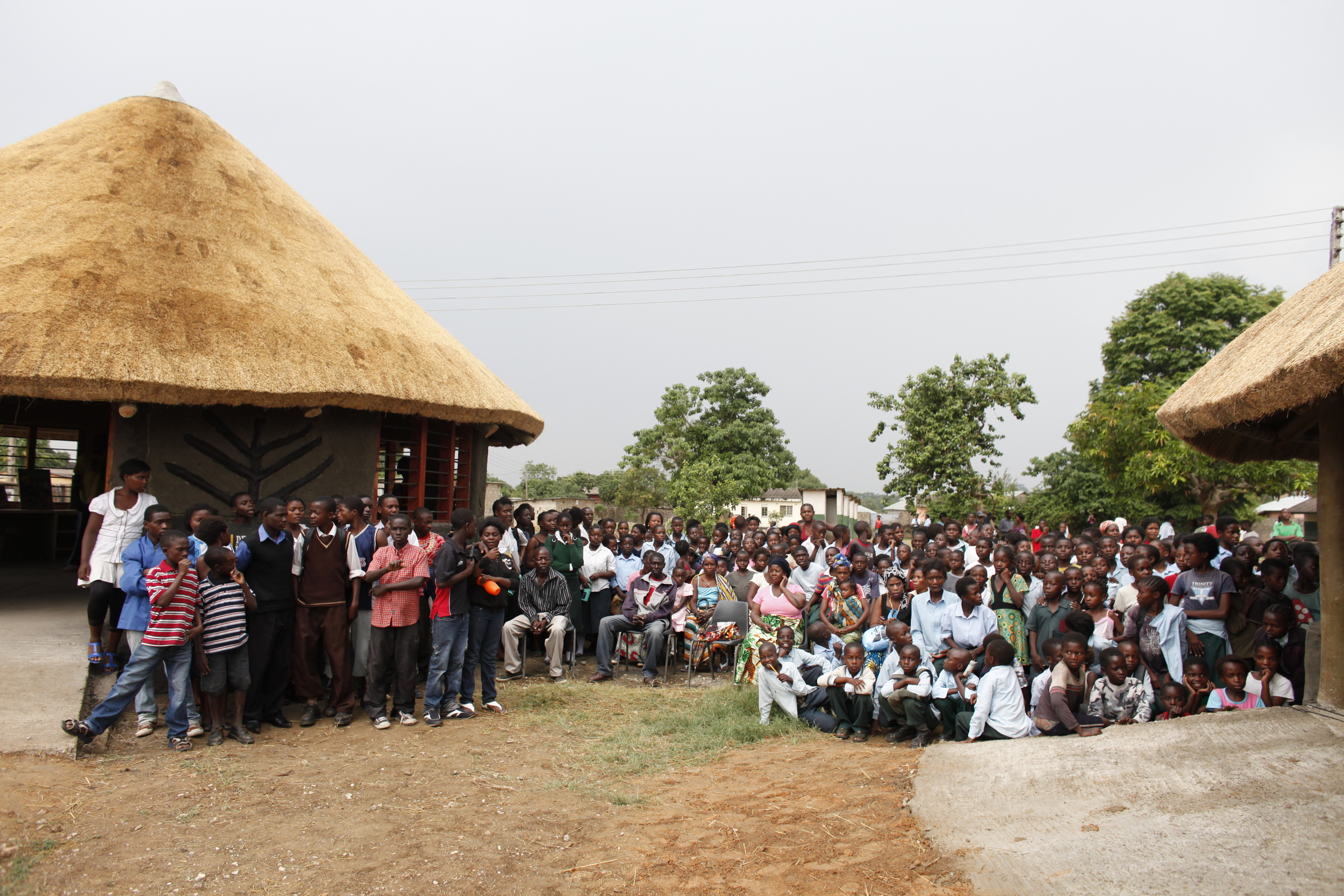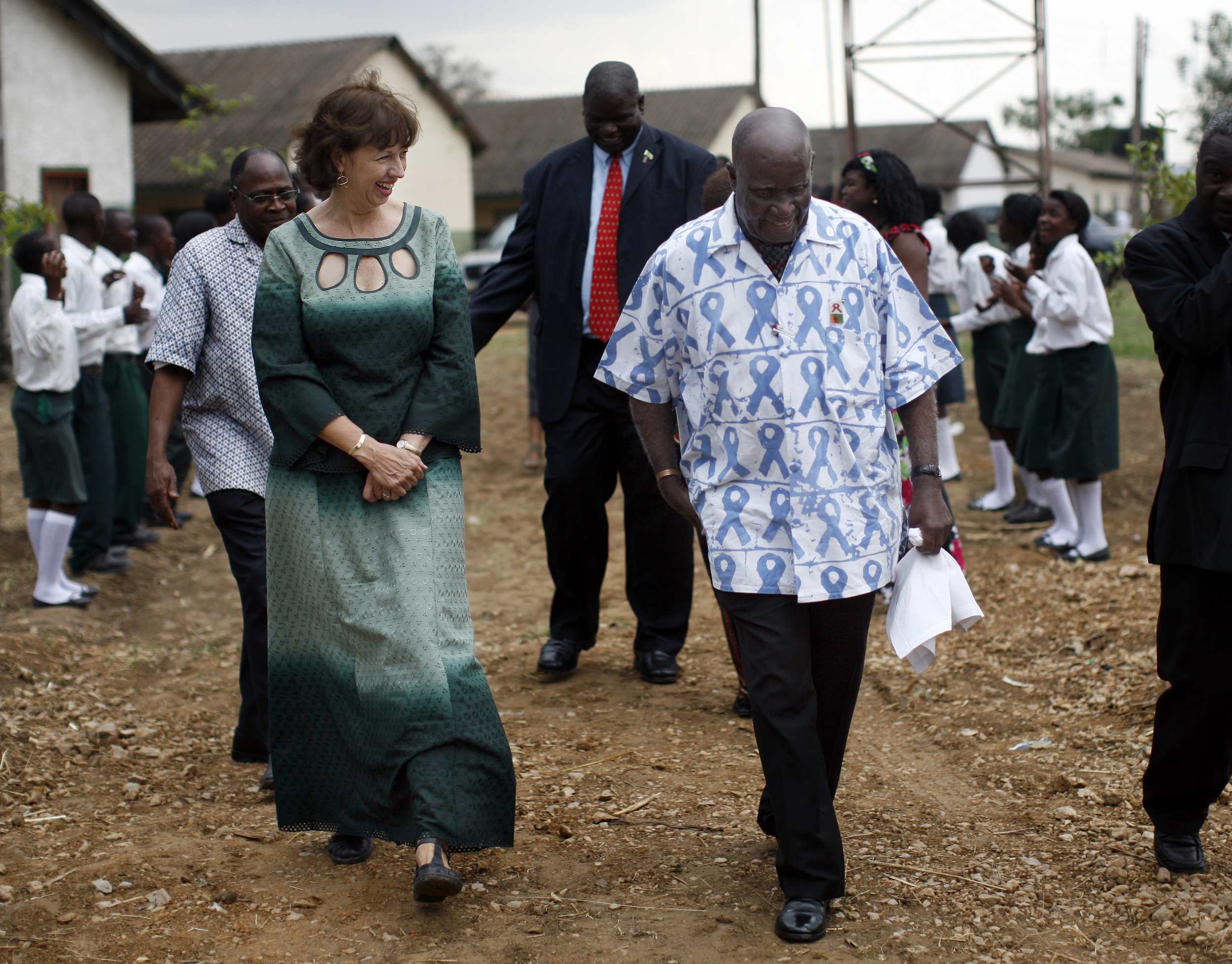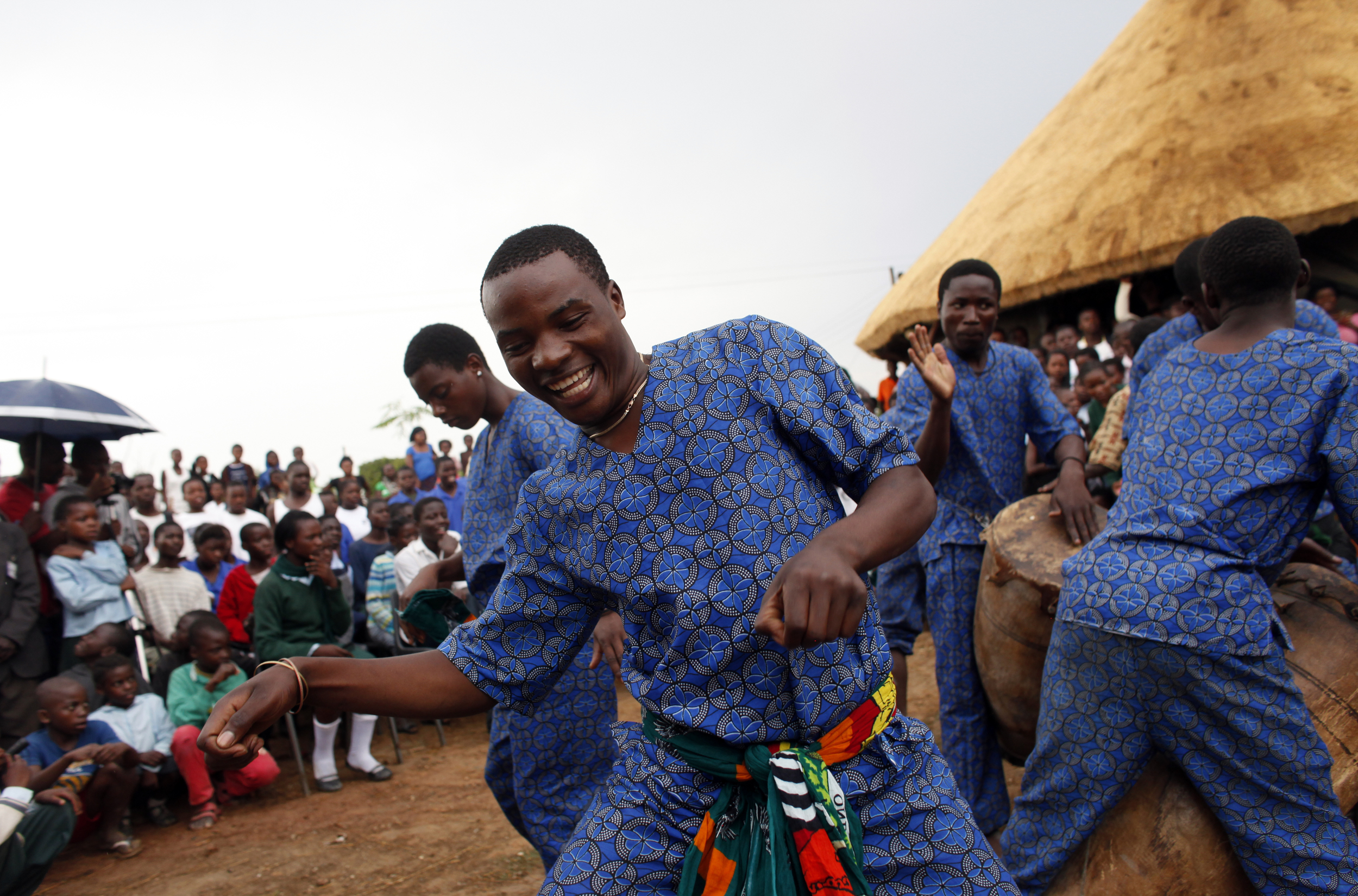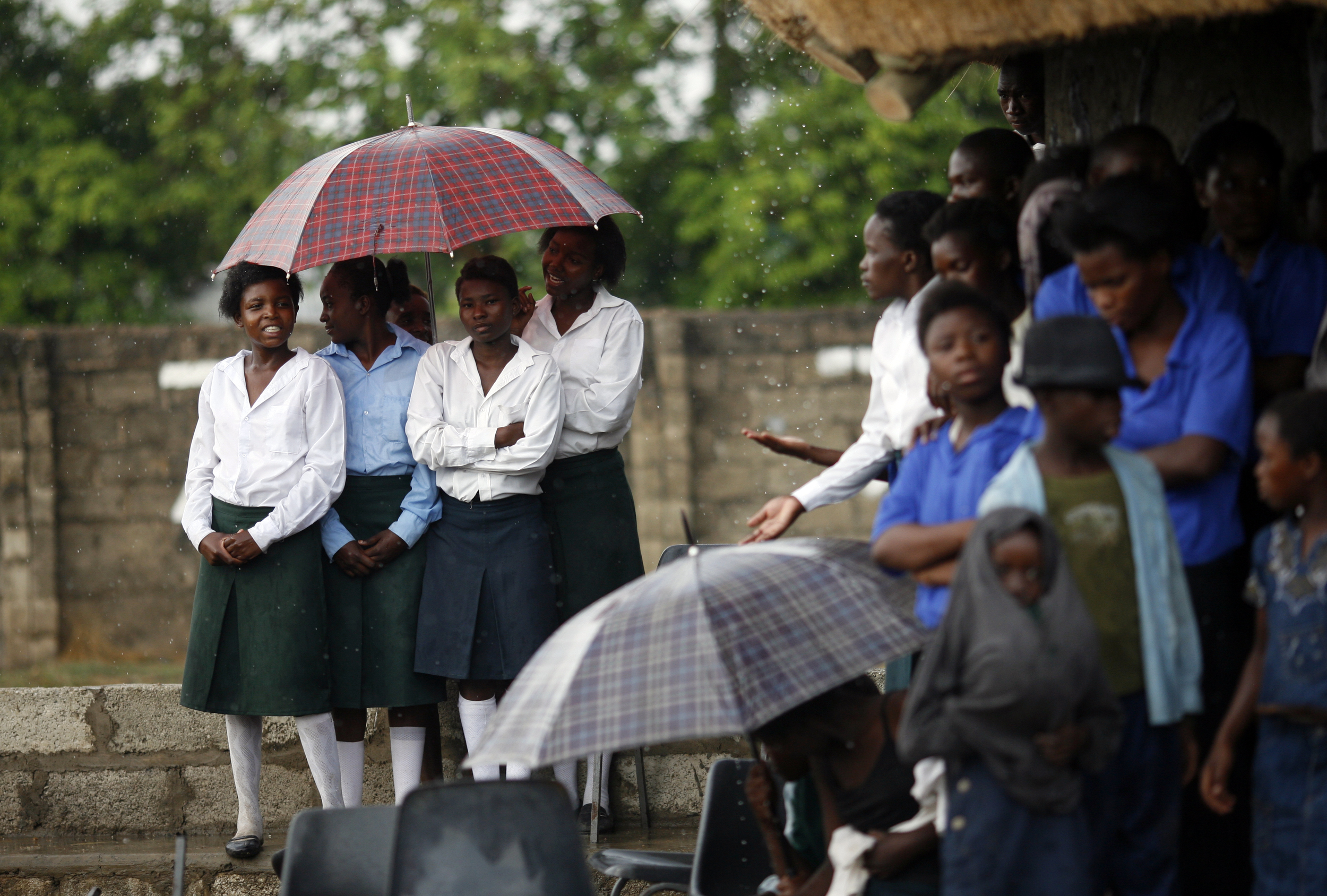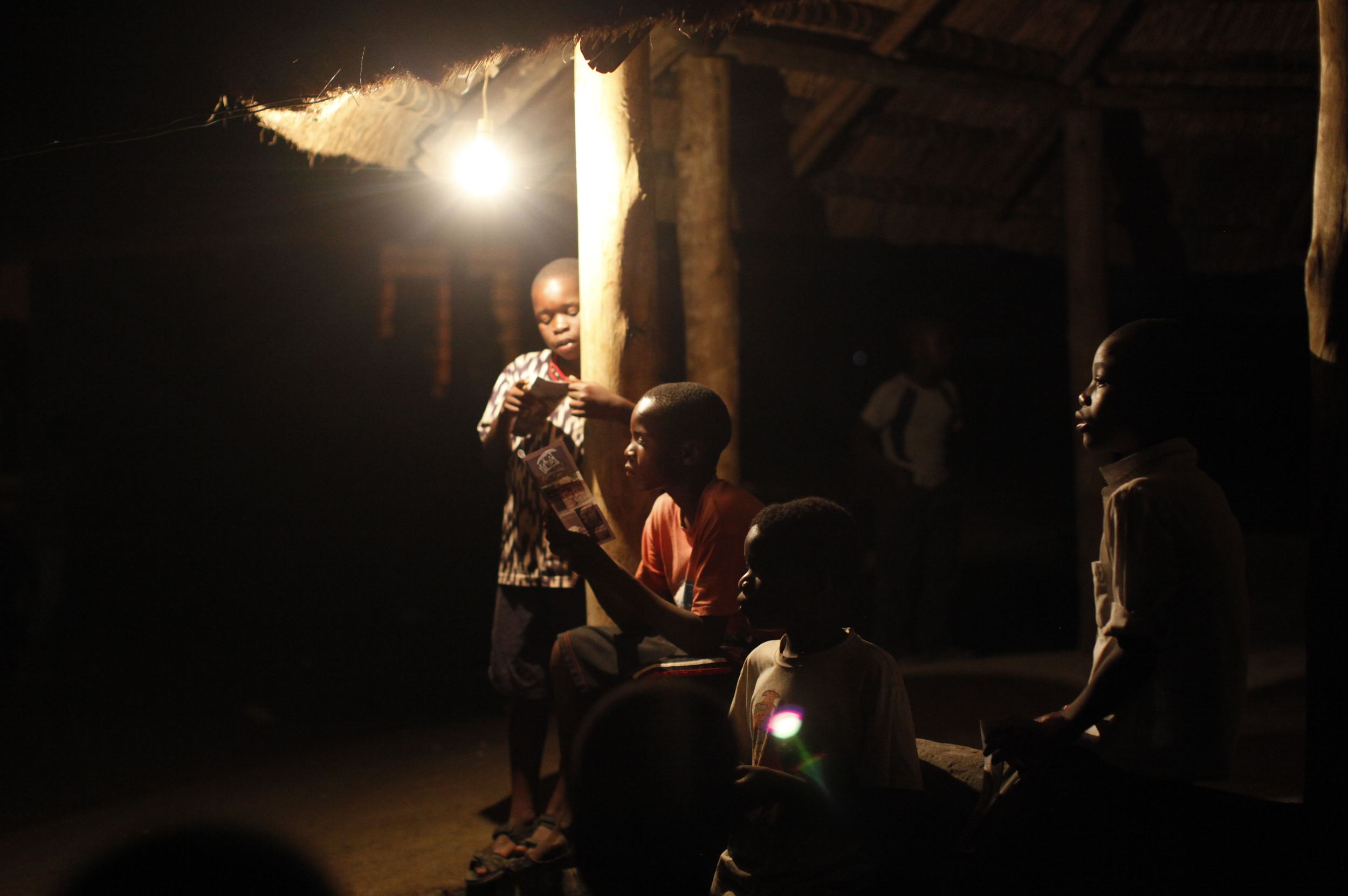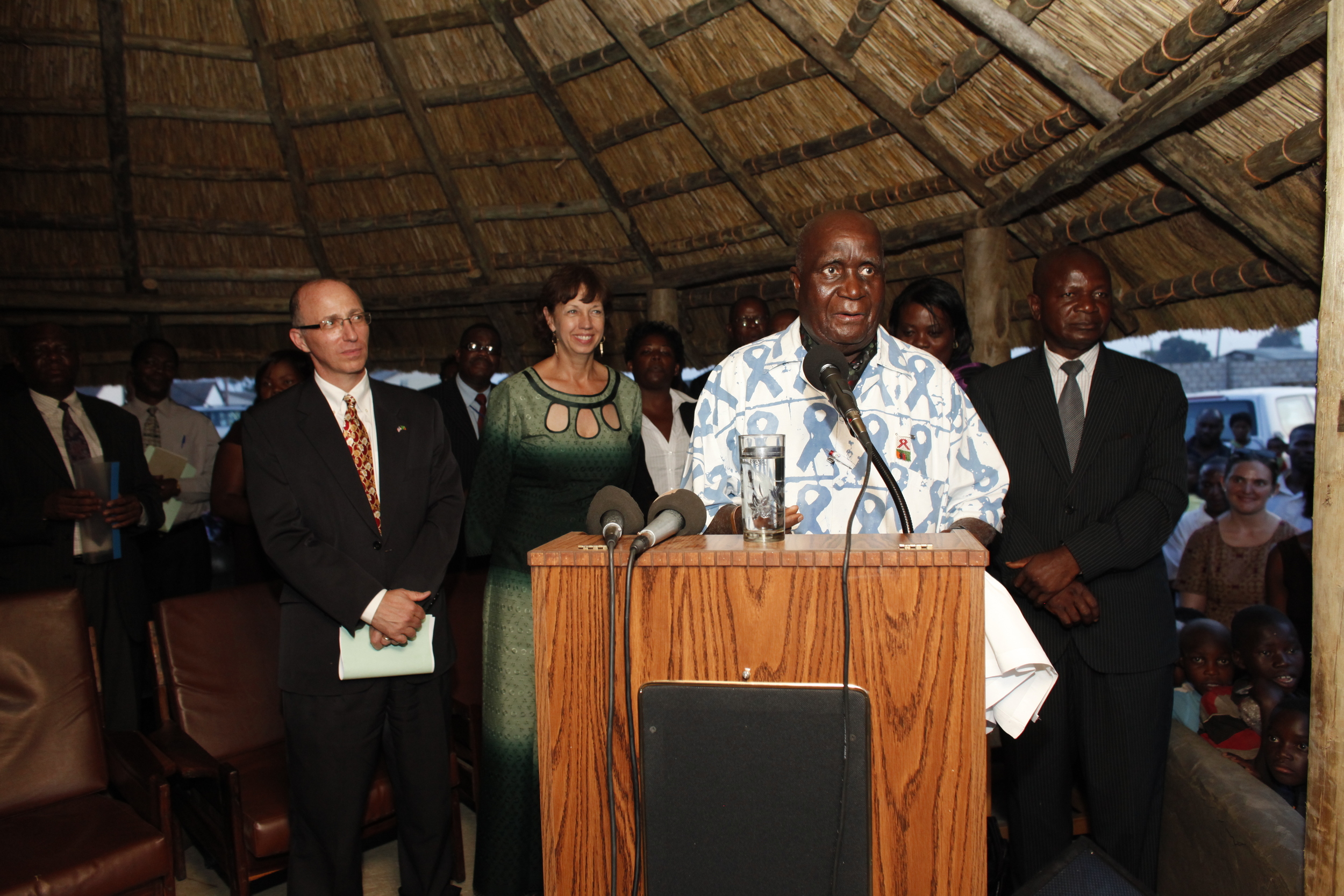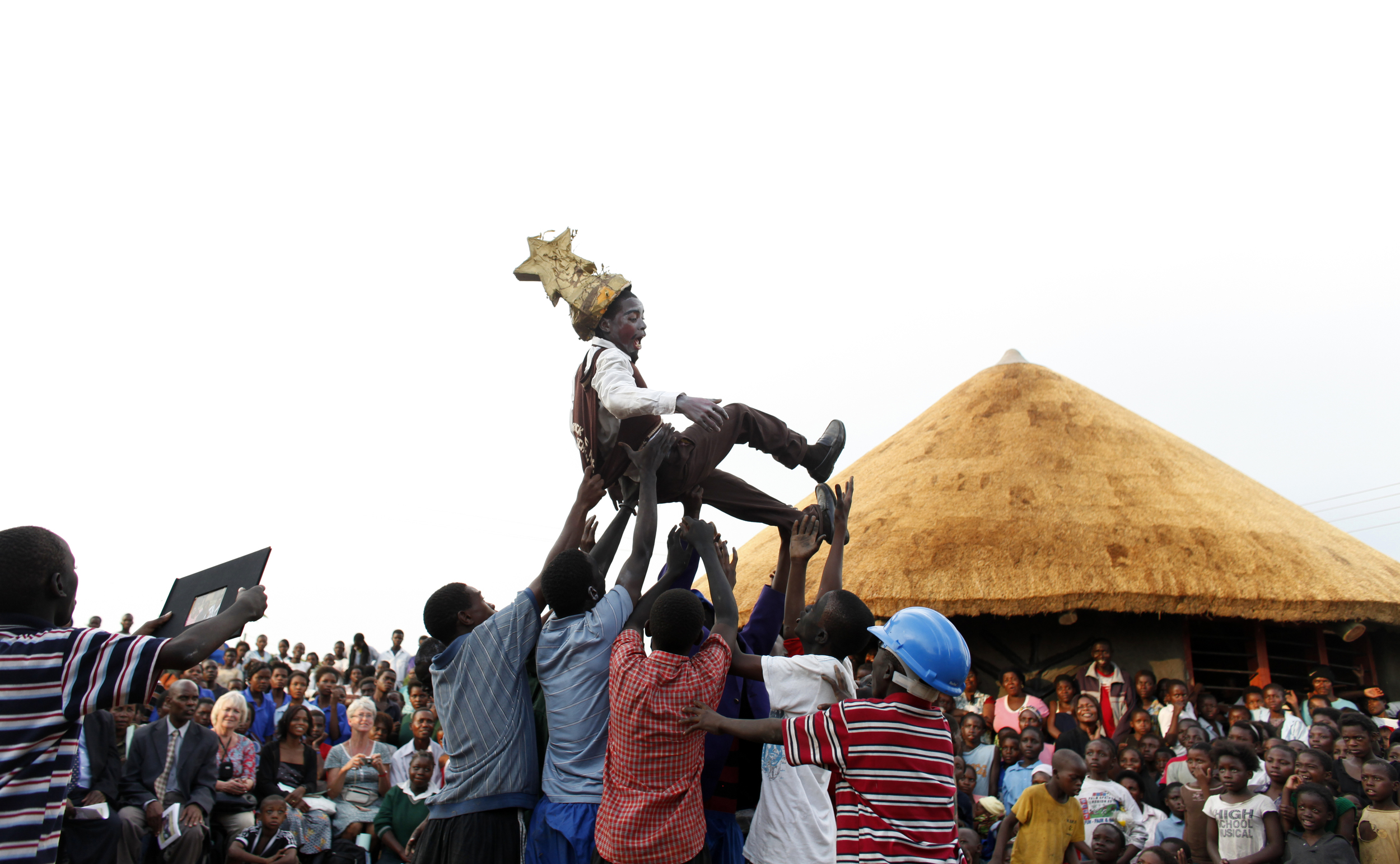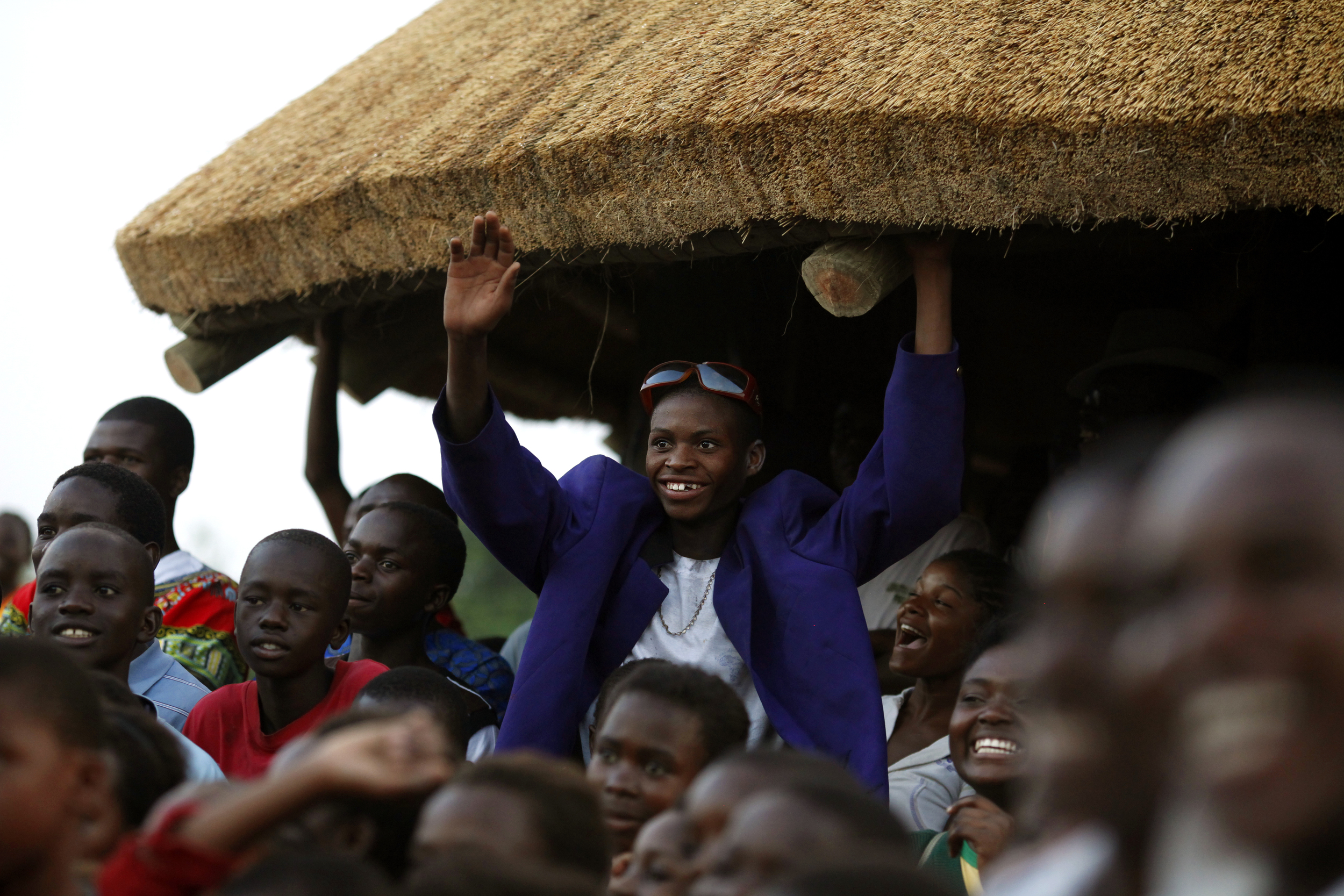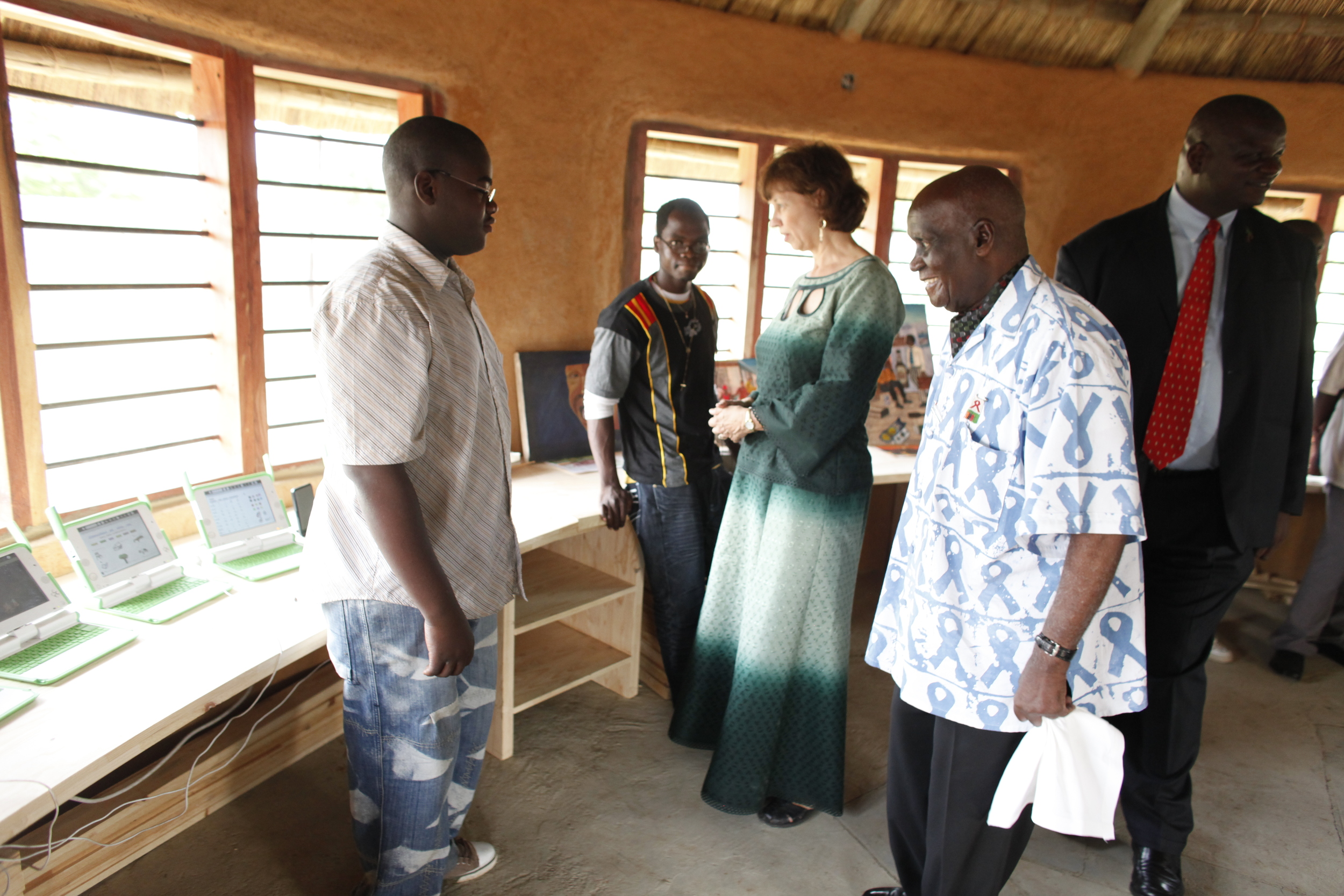I would like to welcome you to this celebration of the renovated and expanded Lubuto Model Library – and a new Lubuto Center for Training and Administration – and the whole Lubuto Library Network.
But first I’d like to introduce, or reintroduce, Lubuto Library Partners.
We are a grassroots, locally led organization that has created a network of dynamic, free libraries to support Zambian children and youth, particularly the most vulnerable, including those out of school, children with disabilities, young mothers and those living on the street. Lubuto equitably welcomes Zambia’s young people in safe, inclusive and joy-filled spaces—giving them opportunities to grow, learn and thrive.
We work through this flagship Model Library whose initial construction was funded by Dow Jones & Co. on this land provided by the Ministry of Education and officially opened by First Republican President Kaunda in 2010. Four other Lubuto libraries were since established, that are owned and intended to be sustained by local organizations. We have been able to do this, along with building the beautiful Center for Training and Administration you see behind us, with grants from the U.S. Agency for International Development. USAID’s American Schools and Hospitals Abroad program (ASHA) funded the creation of all of the libraries’ and training center’s physical infrastructure, including allowing us to select and purchase a comprehensive collection of the best books in print (outlined in program handout), all of the technology, equipment and furnishings for the libraries. The other Lubuto Network libraries are:
Mumuni Model Rural Library, Nabukuyu (23 km east of Monze)
Lubuto Mthunzi Library, Lusaka West, hosted by the Mthunzi Centre
Mumuni Choma Library, Choma, hosted by Brethren in Christ Church Choma Child Development Project
Lubuto Comboni Library, Kanyama, Lusaka, hosted by St. Daniel Comboni Missionary Sisters
All of these libraries are constructed or renovated with funds provided by USAID/ASHA. Funding to support the libraries’ operations is provided by their host organizations.
We introduced the first libraries in Zambia that exclusively targeted young people from birth to age 24. By doing this we have demonstrated in a real, hands-on way, the critical, missing services that free public libraries can provide to children and their communities, including mentoring for adolescents, fighting early marriage, coding camps and makerspaces, sign-language reading for the deaf, and creative expression through art, music and drama, and so many others, that are as central to what we are as the books on our shelves. In doing so, we overturned narrow perceptions about what a library can be and do.
Our roots lie in our long experience of working with the large numbers of children in Lusaka who were living in extremely vulnerable situations, who were disconnected from their communities, and were being left by the wayside. A library that we set up in a shipping container at the Fountain of Hope drop-in shelter over 20 years ago was not only loved by the center’s children but also was reported to us as having helped many of them to get into secondary school. This signaled that a sustained, professionally directed approach might help large numbers of children realize their dreams. There was good reason to believe that this would be the best way to deliver services that children and their communities wanted and needed, and that were not being provided anywhere else.
While Zambia has well-established library and information science programs, they do not offer education in the provision of children’s library services other than for school libraries. We believed that creating libraries focused solely and effectively on the interests and needs of children allowed us to learn how best to serve Zambia’s young people, develop programs that are tailored to them, and measure their impact. Working in partnership with our colleagues we have been able to expose current and future librarians to children’s literature and library services.
Along the way we have learned, and demonstrated, that libraries can fill many critical gaps in the services that communities desperately need. A key population that had been left completely out was the street kids. We learned a lot about reaching and helping them through effective outreach.
And when they began to come to their library, we learned that the children could themselves become the experts in the use of technology that was specifically designed for them: the One Laptop Per Child laptops. The youth quickly discovered a simple programming app called Etoys on the computers, and from them we learned that we could use Etoys and work with experienced Zambian teachers to create computer-based literacy lessons in the seven major Zambian languages. Funding from a USAID/World Vision/Australian AID All Children Reading grant allowed us to improve the lessons, which have taught thousands of children to read in their mother tongues.
We learned of the need for so many out-of-school young mothers to learn to write and read English in order to get a job, the genesis of Lubuto’s Family Literacy Program.
And when Lubuto began to offer the Family Literacy Program for young mothers, it became clear that their children needed care while the mothers learned. We had earlier learned about some traditional approaches to early childhood education from families in rural Nabukuyu. Then we learned more of the needs of community members in our outreach efforts. We began to develop a more formal approach to library-based early childhood education and early literacy programming, built collections of books for the very youngest, and now an Early Learning Center as a feature of Lubuto Libraries.
A poster of the Zambian Sign Language alphabet in the library was an immediate magnet for deaf children, their families and volunteers who offered regular sign-language storytimes and met another critical need.
We learned about the role that Lubuto’s great books, films and mentoring programs played in developing character strengths among the youth who flocked to the libraries. Academic research on the impact of this programming, supported by a Templeton World Charity Foundation grant, will help us and others to better understand its value.
And we learned a great deal about the rising HIV infection rate of adolescent girls in our libraries’ communities. Our successful project supported by a US government PEPFAR DREAMS grant showed how public libraries can be a unique gateway for linking girls at risk of HIV infection to information and services that empower them to develop life skills, prevent HIV, and stay in school. We established new mentoring programs to tackle discriminatory gender norms, provide health education, and foster girls’ resilience and determination to succeed.
Every single Lubuto program—from mentoring, art, drama and storytimes, to fighting gender-based violence and child marriage, early childhood education, targeted outreach and skills-based makerspaces—grew organically in response to ideas and needs of Zambia’s young people.
The children who visit our libraries are passionate about learning the arts, science, history, geography and culture; they love stories, read aloud and in private, alone and with friends. Lubuto’s book collections, movies, and games are sought after and loved.
And, of course, all of this underscores the importance of creating welcoming and versatile physical spaces that can support a wide range of uses and large numbers of users – and are permanent and enduring parts of the community for generations to come.
As must be clear by now, from the beginning, Lubuto has been way ahead of the curve on locally led development. And the American people have been with us all along our journey of grassroots response to the needs of Zambia’s young people. We have always received encouragement and support from US Ambassadors to Zambia and some US Embassy small grant programs. But, especially, USAID’s American Schools and Hospitals Abroad program, and professional expertise provided by of American librarians, drove Lubuto’s establishment and growth. While we are here today to express our appreciation and gratitude for that, we also anticipate that this important relationship will continue well into the future.
The success of our locally led initiatives would not have been realized were it not for the support and leadership from prominent Zambians:
Mark Chona
Lillian Kapulu (that we’re so happy could join us here today) who, while Principal Secretary of Education, directed that Lubuto use this perfect site for our library.
Zambian Ambassadors to the U.S. have played a key role in our ability to mobilize financial and volunteer support from our very beginnings. Ambassador Inonge Mbikusita-Lewanika and Ambassador Sheila Siwela opened up the Zambian Embassy for a number of key events that introduced Americans to Zambia and our work there. Both Ambassadors are members of our Advisory Board. Also on our Advisory Board from Zambia are Mark Chona, Mulenga Kapwepwe, Mark O’Donnell and Ambassador Barbara Chilangwa.
A very important partner since even before the Lubuto organization was established is the University of Zambia Department of Library and Information Science, and also our colleagues in the UNZA Library
Also important have been our friends and colleagues in the Zambia Library Service and the Library and Information Association of Zambia
Partnership with the Zambian Educational Publishing House led us to build a kiosk here to support sales of their books. While that plan hasn’t yet been realized, we will continue to work with ZEPH to make their books widely available, because local publishing is important, and libraries thrive when publishers thrive.
In Lubuto’s early days several individuals were instrumental in design and development of Lubuto’s programs.
Mulenga Kapwepwe, besides suggesting our name “Lubuto,” inspired our efforts to identify and scan the literature in our Zambia Heritage Collection
Dr. Lawrence Mukuka (who is here today) developed a life-changing “Motivational Mentoring” program that has evolved over the years to address a wide range of challenges today’s youth face
Mwamba Mulangala established the art program, that has been carried forward and adapted into a widely popular program by one of his students and key member of Lubuto’s staff, Enesto Mwale
And last, but by no means least, are the dedicated members of Lubuto’s Zambia Board:
Ambassador Barbara Chilangwa (Chairman)
Prof. Akakandelwa Akakandelwa
Peggy Chilema
Anna Murru
Benson Njobvu
We are so happy that Ambassador Barbara, Peggy Chilema and our newest member, Anna Murru, could be here today. Please help us express our deep appreciation for their willingness to guide our locally-led efforts forward.
Now I would like to invite the board chair, the widely respected Ambassador Barbara Chilangwa, to offer her remarks.
Opening Celebration
The opening celebration for the second Lubuto Library took place on November 10, 2010 and was a great success—with some 500 children, youth and adults attending, despite unseasonably early rains. We were honored again by our special guest, the First Republican President of Zambia, Kenneth D. Kaunda, who was introduced by his former political advisor and member of Lubuto’s Advisory Board, Mark Chona.
Dr. Kaunda was recognized worldwide for the central role he played as a leader of the "frontline states" in the long confrontation between independent Black Africa and the white-dominated south of the continent until the end of apartheid. That such an important figure in Africa's history recognized the importance and came to celebrate the opening of this library was both thrilling and humbling.
The Guest of Honor, Deputy Minister of Education, Hon. Crispin Musosha, M.P., was represented by Ministry of Education Permanent Secretary Andrew Phiri. Member of Parliament for Mandevu, Hon. Jean Kapata also made congratulatory remarks, and the emcee was our own Mulenga Kapwepwe, Advisory Board member and Chairperson of the National Arts Council of Zambia.
The opening activities included story dramatizations and dance performances by Zambian children and youth, and presentations by authors Peggy Chilema and Gankhanani Moyo of local-language books they created during a recent book-making workshop co-sponsored by Lubuto Library Partners and the Zambian Board on Books for Young People.
Opening Speeches
Model Library opening photos
[The opening] represents the first effort under a formal agreement between Lubuto and the Ministry of Education to work together to actively seek out difficult-to-reach Zambian children and youth to extend high quality educational opportunities to this large and vastly underserved populationJane Kinney Meyers

